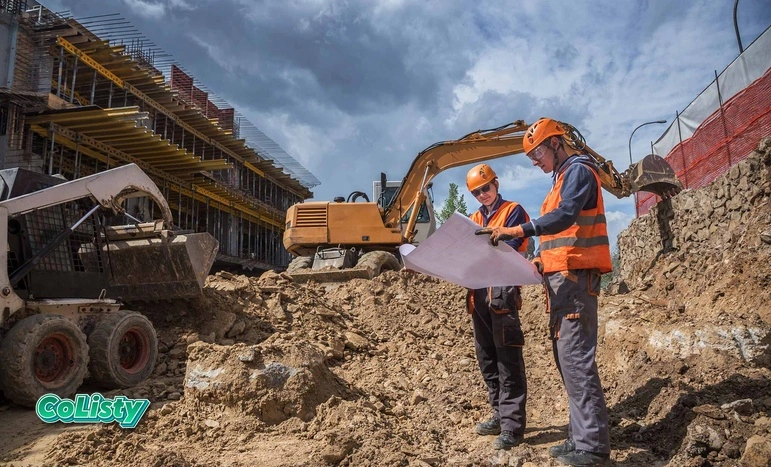Geotechnical Engineer: A Complete Career Guide

Geotechnical Engineer: A Complete Career Guide
Introduction to the Role
A Geotechnical Engineer specializes in understanding the behavior of soil and rock beneath the surface of the earth to ensure safe and stable structures are built. This role is essential in ensuring the safety and functionality of foundations, tunnels, bridges, roads, and other infrastructure projects. Geotechnical engineers play a critical role in assessing risks related to ground conditions, conducting site investigations, and advising on how to mitigate risks like landslides, earthquakes, and soil subsidence.
Geotechnical engineering is a specialized branch of civil engineering, and professionals in this field use knowledge from geology, physics, and material science to solve complex problems related to the ground. For more about the importance of geotechnical engineering, check out Geotechnical Engineering Journal.
Job Details and Daily Activities
Geotechnical engineers work in both office and field environments. In the office, they are involved in designing and analyzing data, while in the field, they conduct soil sampling, manage investigations, and observe construction sites.
Key Responsibilities:
-
Site Investigation: Conducting geotechnical investigations to understand the soil and rock properties of construction sites. This includes drilling boreholes, collecting samples, and analyzing soil behavior.
-
Design and Analysis: Designing foundations, retaining walls, tunnels, and other structures based on geotechnical properties. They use specialized software and geotechnical models to predict how the ground will behave.
-
Risk Assessment: Identifying and mitigating potential risks related to ground stability, such as soil liquefaction, landslides, and settlement.
-
Consulting: Advising architects, engineers, and construction managers on ground-related issues and providing recommendations on how to build safely.
-
Construction Supervision: Overseeing construction to ensure that ground-related issues are properly addressed and that foundations are built according to specifications.
For a deeper understanding of the daily tasks, visit American Society of Civil Engineers.
Required Education and Training
To become a geotechnical engineer, one must complete specific educational requirements, followed by professional certification.
Educational Path:
-
Bachelor’s Degree: A bachelor’s degree in civil engineering or a related field is typically required. This program covers core topics like structural mechanics, soil mechanics, and material science.
-
Master’s Degree (Optional): Some geotechnical engineers pursue a Master’s degree in geotechnical engineering to gain specialized knowledge and enhance their career prospects.
Licensing and Certification:
-
Professional Engineer (PE) License: In many countries, geotechnical engineers must obtain a PE license to practice legally. This involves passing the Fundamentals of Engineering exam and the Principles and Practice of Engineering exam.
-
Geotechnical Engineering Certification: After gaining professional experience, engineers can pursue additional certifications from bodies like the Academy of Geo-Professionals.
Essential Skills and Competencies
Geotechnical engineers must have a solid foundation in both technical and soft skills to be successful in their roles.
Technical Skills:
-
Soil Mechanics: A deep understanding of soil properties, including compaction, permeability, and shear strength, is crucial.
-
Geotechnical Software: Proficiency in software like GeoStudio, Plaxis, and AutoCAD is essential for designing and analyzing geotechnical models.
-
Site Investigation Techniques: Knowledge of various field testing methods like Standard Penetration Tests (SPT), Cone Penetration Tests (CPT), and borehole drilling.
Soft Skills:
-
Problem-Solving: Geotechnical engineers must be able to analyze complex data and devise practical solutions to ground-related challenges.
-
Communication: Effective communication skills are needed to present findings and recommendations to clients, project managers, and other stakeholders.
-
Attention to Detail: Geotechnical engineering involves a lot of precise calculations and careful analysis, requiring strong attention to detail.
For more on required skills, check out Geotechnical Society of London.
Globally Recognized Certifications and Courses
There are several internationally recognized certifications that can enhance the skills and employability of geotechnical engineers.
-
Geotechnical Engineering Certification (GEO): Offered by organizations like the Academy of Geo-Professionals, this certification validates the expertise of practicing geotechnical engineers.
-
Certified Geotechnical Engineer (CGE): A globally recognized certification that enhances credibility in the field.
-
Soil Mechanics Courses: Universities like University of Cambridge offer advanced courses in soil mechanics, which can benefit aspiring geotechnical engineers.
Salary Insights
The salary of a geotechnical engineer can vary based on factors such as experience, education, and geographic location.
-
Entry-Level Geotechnical Engineers: On average, entry-level geotechnical engineers earn between $55,000 and $70,000 annually.
-
Mid-Level Engineers: Engineers with a few years of experience can expect to earn between $75,000 and $95,000 per year.
-
Experienced Engineers: Senior geotechnical engineers or those in leadership positions can earn over $110,000 annually.
Salaries may differ based on the industry and region. For more salary details, refer to Glassdoor Salary Guide.
Regions in High Demand
Geotechnical engineering is in high demand worldwide, but certain regions experience stronger demand due to their ongoing infrastructure projects and environmental challenges.
-
North America: The U.S. and Canada have a steady demand for geotechnical engineers, especially in urban development and infrastructure renewal.
-
Middle East: Countries like the UAE and Saudi Arabia are experiencing significant construction growth, creating demand for geotechnical expertise.
-
Asia-Pacific: Rapid urbanization in countries like China and India has led to an increase in geotechnical projects, creating opportunities for engineers.
For more on job opportunities in geotechnical engineering, visit Engineering Jobs.
Statistics and Trends
The demand for geotechnical engineers is projected to grow as the world focuses on building more sustainable, resilient infrastructure. According to the U.S. Bureau of Labor Statistics, employment in civil engineering, including geotechnical engineers, is expected to grow by 2% from 2020 to 2030.
For additional industry statistics, visit Bureau of Labor Statistics.
Major Companies Hiring in This Domain
Several top companies are actively hiring geotechnical engineers to work on a range of civil and construction projects. Some notable companies include:
-
Golder Associates: A global engineering and consulting firm specializing in geotechnical engineering services.
-
Jacobs Engineering: Known for its involvement in major infrastructure projects requiring geotechnical expertise.
-
Arup Group: A leading design and consulting firm hiring geotechnical engineers for large-scale development projects.
For job listings, check out Jacobs Engineering Careers.
Conclusion
The role of a geotechnical engineer offers diverse career opportunities in a field that combines problem-solving, environmental awareness, and civil engineering expertise. With a growing demand for infrastructure and sustainable construction, geotechnical engineers are essential to the development of safe and stable structures. This profession provides excellent career growth potential, making it a highly rewarding path for those with a passion for engineering and the earth sciences. Whether you’re just starting or looking to advance your career, becoming a geotechnical engineer offers long-term potential and job security.
-
Categories
Everything You Need to Know About Becoming an Actuary and Thriving in the Field
Published on Thursday, 23 January 2025 -
Categories
Everything You Need to Know About Becoming a Budget Analyst and Thriving in the Field
Published on Thursday, 23 January 2025 -
Categories
The Role of a Construction Project Manager: Responsibilities, Skills, and Opportunities
Published on Thursday, 23 January 2025 -
Categories
A Comprehensive Guide to Becoming a Successful Curriculum Developer
Published on Thursday, 23 January 2025




Share